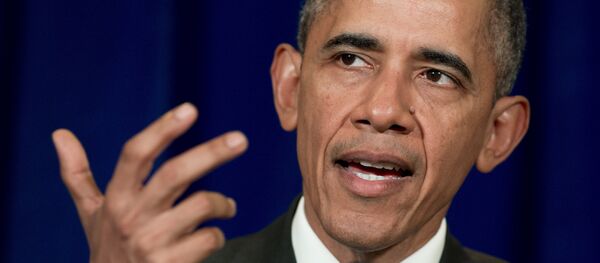Throughout the ongoing civil war in Syria, Western leaders have been adamant about one prerequisite for peace: Syrian President Bashar al-Assad must step down.
But with the increasingly dire threat of the self-proclaimed Islamic State terrorist group – highlighted by downing of the Russian A321 jet on Egypt’s Sinai Peninsula and the Paris terror attacks – the West is beginning to show more flexibility on the fate of the Syrian leader.
During the 17-nation gathering in Vienna last weekend, a peace plan was drafted which states that "free and fair elections would be held pursuant to the new constitution within 18 months." Speaking on this plan, the US State Department said that new Syrian elections could establish a new parliament, but that the vote would in no way guarantee Assad’s ousting, according to the Associated Press.
Even if peace negotiations did lead to a change in Syrian leadership, it’s likely that Assad would remain through a transitionary period which would last until at least 2017.
Some Western politicians are even considering the option of keeping Assad as a permanent ceremonial president to ensure stability.
This is largely in line with what Russian officials have said from the beginning. The destabilization of Assad’s legitimate government would only lead to more violence and unrest, and it is up to the Syrian people — not Western diplomats — to decide their nation’s future.
"Nothing can start before defeating the terrorists who occupy parts of Syria," Assad recently told Italian state television.
The United States and its allies are, at last, coming to this realization.
But just because a tentative peace deal is in place doesn’t mean that the Obama administration is pleased with the idea of Assad potentially holding onto power.
"I do not foresee a situation in which we can end the civil war in Syria while Assad remains in power," President Obama told reporters in Manila last week. "Even if I said it was okay, I still don’t think it would actually work. You could not get the Syrian people, the majority of them, to agree to that kind of outcome.
"And you couldn’t get a number of their neighbors to agree to that outcome, as well."
These comments may, in fact, have more to do with Washington’s waning influence over the Syrian conflict. The Obama administration has faced heavy criticism for its inability to develop a coherent strategy in the region. The Pentagon’s initial plan to train-and-equip so-called "moderate" Syrian rebels was halted after failing to get off the ground in any meaningful way. The Obama administration’s latest plan to deploy up to 50 Special Forces advisers is already facing skepticism.
Russian airstrikes, on the other hand, have devastated IS targets, destroying 472 targets in the last 48 hours alone.
With new presidential elections approaching in the United States, it’s looking more and more likely that President Obama will leave office long before President Assad.





